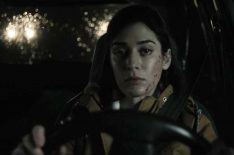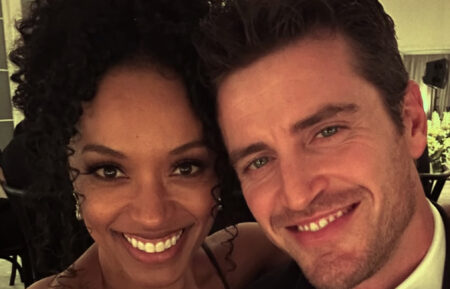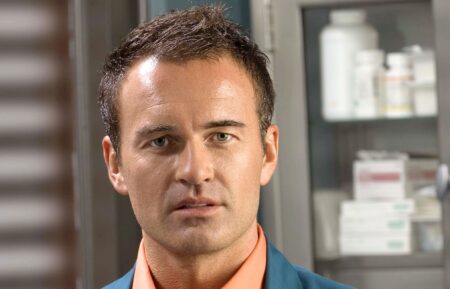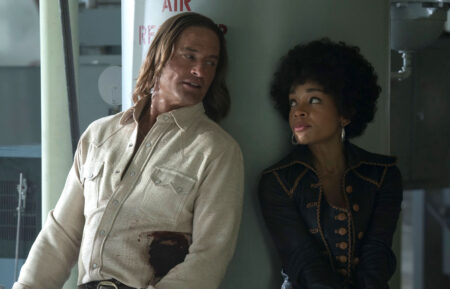Lizzy Caplan on That Shocking ‘Castle Rock’ Finale & Finding Annie’s Laughing Place
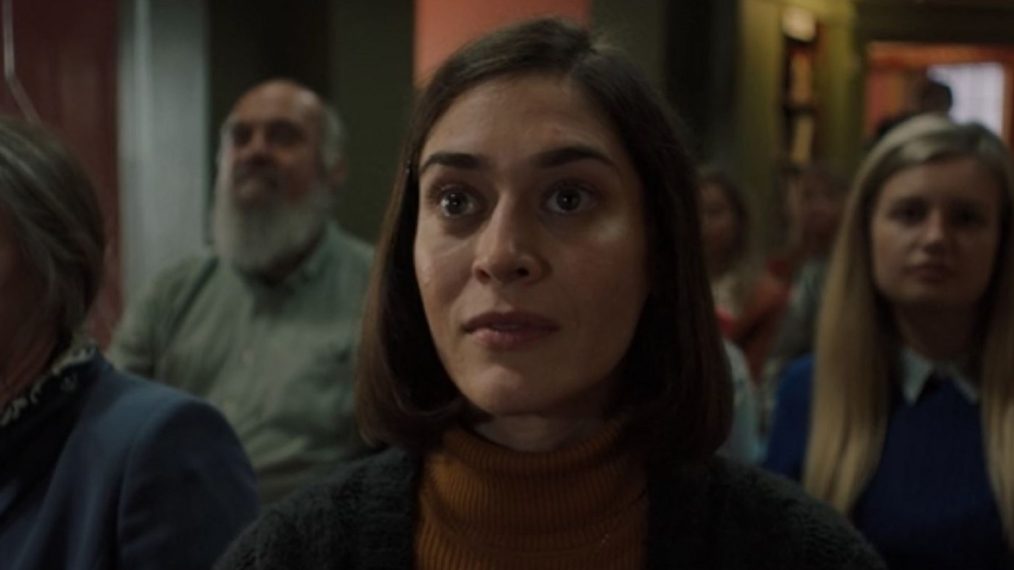
Spoiler Alert
[Warning: This article contains MAJOR spoilers for the Season 2 Finale of Castle Rock, “Clean.”]
The second season of Hulu’s anthology series Castle Rock wrapped up in December 11’s finale episode after weeks digging into the origin story of one of Stephen King’s most iconic characters, Annie Wilkes.
Following Annie (expertly played by Lizzy Caplan) and her “daughter” Joy (Elsie Fisher) as they attempt to find her long sought-after Laughing Place, Season 2 revealed the insidious nature of the titular town. Throughout the season, Annie’s demons and weak mental state closed in on her and in the season finale, viewers finally were privy to the weight of those demons as they came crashing down on her.
Ultimately, Annie didn’t believe her salvaged daughter was truly back to normal, so she takes matters into her own hands and things turn, ahem, deadly.
Below, Caplan opens up about the devastating culmination of Annie’s story, finding her Laughing Place, reaching Misery, and much more.
Did Annie really find her Laughing Place at the end of this season? She’s gone full-blown delusional by the end, is that insanity where she’s most at home and happiest?
Lizzy Caplan: Oh, that’s heartbreaking. I don’t know if I would use the word happy necessarily, but obviously if you take our Annie Wilkes and then you think about the Annie Wilkes from Misery, our Annie Wilkes has not accepted her mental illness in the same way. She’s trying to combat it with prescription pills, and she’s doing everything she can to keep her demons at bay. And hopefully after the finale, my goal was always to have it feel to the audience like she is now at least accepting who she is. She’s not going to fight it anymore, and that person down the line becomes the Misery Annie Wilkes.
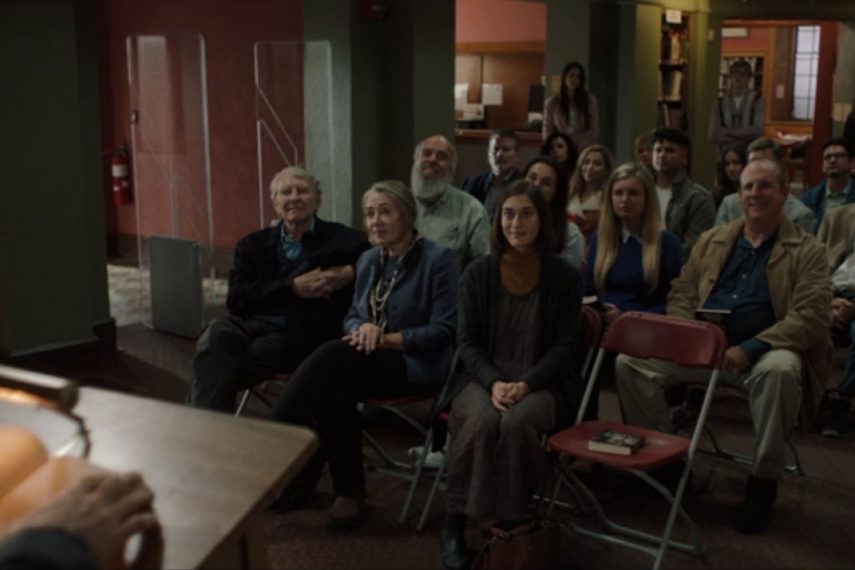
(Credit: Hulu)
She’s pretty much hugging her demons by the end of this episode.
Well, she found a new thing to love. She needs something to love, and she really hasn’t had any. Our Annie from the origin story earlier in the season, you see she’s had a singular obsession her entire life. That obsession changes from her father, to Joy, to Paul Sheldon in Misery. But there’s been no lapse in that string of things and people to obsess about. And so she has a new host in Paul Sheldon, but it’s very sad. I hope people are upset. I hope they weep and weep into their handkerchief.
Do you think Annie is aware of the fact that she killed Joy? Or is she in a state of delusion since she didn’t see her as the “real” Joy?
That’s a good question. I feel like that is kind of open to interpretation by the audience. I’m not sure, because we didn’t get to explore that side of Annie beyond the last minute of the show, but I don’t know if she vacillates back and forth between knowing something’s real and knowing something’s not real like she does with the ghosts of her dead parents.
I think if Joy feels real to her right now, it won’t last for very long, but I’m not sure if she bounces back and forth with this idea of Joy being real or not real quite yet. I think she’s probably all in thinking that she’s real. And then eventually she will be all in thinking that she’s not real.
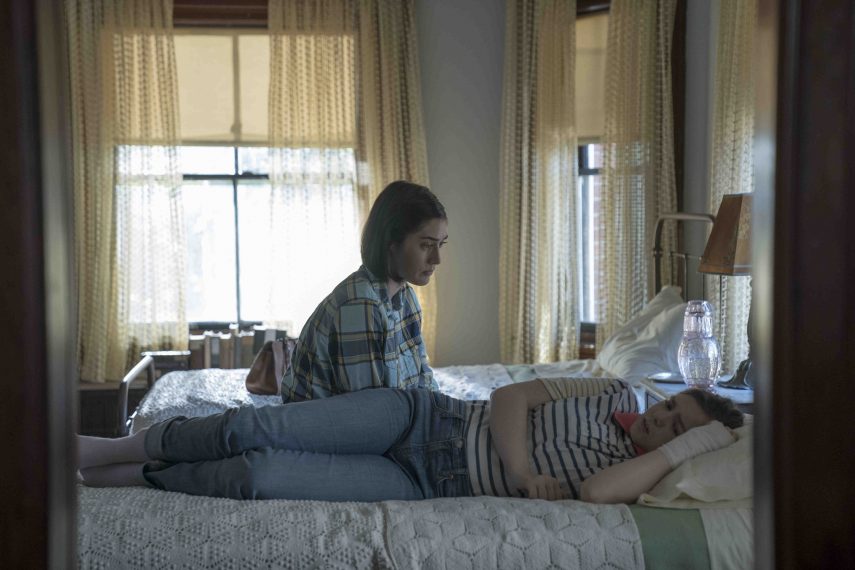
(Credit: Dana Starbard/Hulu)
You can’t even imagine what’s going through her mind. She doesn’t seem to ever address the fact that she went out and casually drowned Joy in the lake.
I know it’s really, it’s quite upsetting. It’s very sad. But also, you asked if she was happier and I suppose there’s a part of her that is happier. The Joy that she revives through her CPR, is the younger, sweeter, more innocent version of Joy that we met at the beginning of the season. But even then Joy was starting to turn into more of a teenager and starting to break away from her mother. That version of Joy is the version of Joy that comes back. So in that way, I’m sure Annie is pleased when she’s with that version of Joy, and she’s so deep in her psychosis at that point, perhaps it’s enough. I guess I hope it is enough for her, because I love Annie.
Right? You can’t help but sympathize for Annie. Was it difficult finding that balance between the brutally violent and innocent, childlike sides of her? Or was that part of the fun?
I guess both. I’m very happy to hear that people are finding her to be a sympathetic character, all things considered, but her plight in our show, it is a sympathetic one. Her motives are pretty pure and pretty noble. She just struggles with these demons and this myriad of mental illnesses, but I do believe that there’s a version of Annie Wilkes where she’s coming from a pure [place].
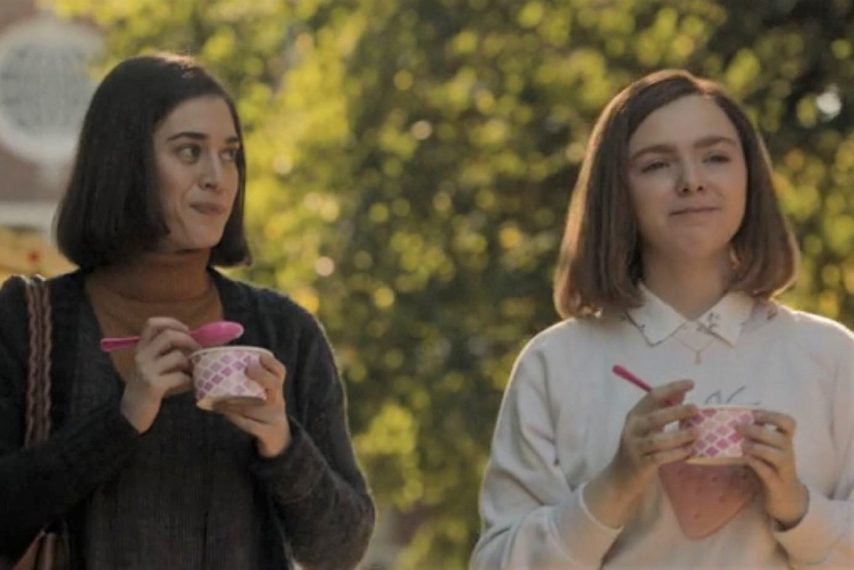
(Credit: Hulu)
I didn’t go into it trying to make Annie sympathetic. I just tried to make her journey feel true and honest to the character, and that wasn’t difficult to do. The writing is really strong and I do feel like her intentions are good — her methods not so much — but I think if you see somebody with pure intentions a lot of people can identify with the idea of doing anything to protect their children.
I think people can not only sympathize with that, but empathize with that. If you have a shred of empathy with Annie Wilkes, that’s making people look in the mirror.
Those drawings Annie found of The Kid (Bill Skarsgard) in Joy’s sketch book were no hallucination. Can we just chalk up Joy’s death to being his fault then?
Obviously everything that occurred in this town was extremely traumatic for everybody. You see as soon as they get rid of the statue of The Kid and the trance is broken everybody just goes completely bananas. This will have a lasting psychological impact on everyone in the town, but especially Joy because she’s had the backstage pass to all of this insanity.
And so one of the things we really wanted to do in the finale is make the audience question whether or not Joy was still under the spell of this other entity, or if she was just recovering from the events that had just happened. We wanted to keep that extremely vague.
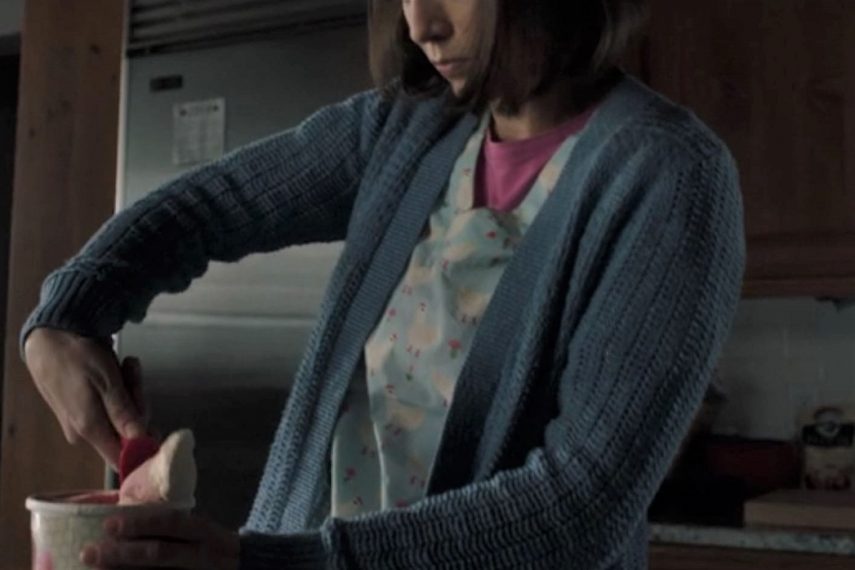
(Credit: Hulu)
We can’t talk without mentioning Annie’s fixation on ice cream and ice cream scoops — I didn’t expect it to come back after Ace’s (Paul Sparks) Episode 1 death. How does it feel to know that it will be associated with Annie’s character moving forward?
I think that would be amazing if this even gets to take a back seat to the original Misery Annie Wilkes’ sledgehammer. If our little ice cream scoop can even get a seat at that table I think that we’ve done a good job. Horror series are really fun for so many reasons, and if you look over the span of these 10 episodes, Annie pulling out an ice cream scoop in the first episode means something very different to when she pulls it out in the last episode, and I tip my hat to the writers of the show that they made an ice cream scoop scary.
This episode also comes full circle, from the ice cream to Carly Simon’s “Let the River Run.” Were you aware of the role this song would play as a device for gauging Annie’s state of mind?
The Carly Simon tie-in was always strong. Originally, when I first read the script months before we started shooting, it was a different song, which I can’t even remember, but I’m very happy that it’s the Carly Simon song. It has been in my head since March of this year — it’s a real ear worm.
I know that the finale version of the song is a Rufus Wainwright cover and at first I remember asking, “well, why aren’t we just circling back to the original Carly Simon one?” It’s Joy and Annie song. It’s their happy time, their traveling song. And then in seeing this episode it’s like, “Oh, I get it.” It actually makes a lot more sense thematically for the song to be familiar, but a little skewed, because her reality is now skewed from what it was when we first met her. And I think the Rufus Wainwright cover is very beautiful.
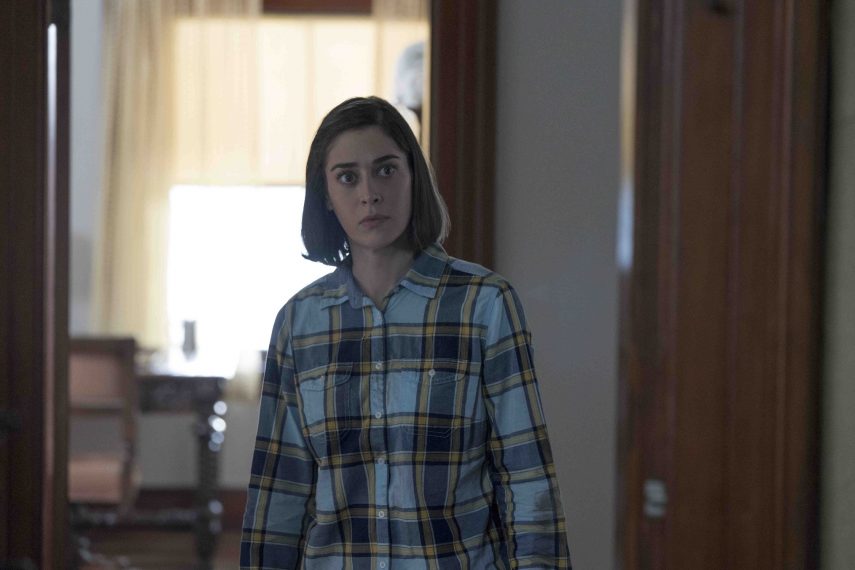
(Credit: Dana Starbard/Hulu)
The drowning scene was very difficult to watch. What kind of preparation or conversations did you have with Elsie before filming?
We did have many conversations, the second half of the finale was very important to both of us, and we really wanted to do everything we could to make it just right. We wanted it to be this very painful moment, and so it meant living in that space. That was the most emotionally draining episode to shoot, this finale episode.
The conditions are helpful in some way, in a very cold lake for many days. That always helps, but one of the nicest things about having the working relationship that Elsie and I developed from pretty early on is that there really was this love and devotion to each other, both on and off set. Sometimes I forget that Elsie is so young and innocent, and scenes like drowning her in the lake remind me of just how young and innocent she is.
And so it wasn’t hard to get there emotionally for either one of us, because it also was the culmination of this insanely intense two hander relationship that we’ve been cultivating over the whole season, but it was brutal. It was hard. We were sad and cold, but mostly sad.
Castle Rock, Streaming Now, Hulu



